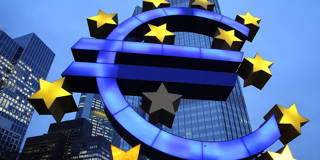With Emmanuel Macron’s victory in the French presidential election, and Angela Merkel’s Christian Democratic Union enjoying a comfortable lead in opinion polls ahead of Germany’s general election on September 24, a window has opened for eurozone reform. But can the two sides agree on how to fix their flawed creation?
BERKELEY – With Emmanuel Macron’s victory in the French presidential election, and Angela Merkel’s Christian Democratic Union enjoying a comfortable lead in opinion polls ahead of Germany’s general election on September 24, a window has opened for eurozone reform. The euro has always been a Franco-German project. With a dynamic new leader in one country and a fresh popular mandate in the other, there is now an opportunity for France and Germany to correct their creation’s worst flaws.
But the two sides remain deeply divided. Macron, in long-standing French tradition, insists that the monetary union suffers from too little centralization. The eurozone, he argues, needs its own finance minister and its own parliament. It needs a budget in the hundreds of billions of euros to underwrite investment projects and augment spending in countries with high unemployment.
Merkel, on the other hand, views the monetary union’s problem as one of too much centralization and too little national responsibility. She worries that a large eurozone budget wouldn’t be spent responsibly. While not opposed to a eurozone finance minister, she does not envision that official possessing expansive powers.

BERKELEY – With Emmanuel Macron’s victory in the French presidential election, and Angela Merkel’s Christian Democratic Union enjoying a comfortable lead in opinion polls ahead of Germany’s general election on September 24, a window has opened for eurozone reform. The euro has always been a Franco-German project. With a dynamic new leader in one country and a fresh popular mandate in the other, there is now an opportunity for France and Germany to correct their creation’s worst flaws.
But the two sides remain deeply divided. Macron, in long-standing French tradition, insists that the monetary union suffers from too little centralization. The eurozone, he argues, needs its own finance minister and its own parliament. It needs a budget in the hundreds of billions of euros to underwrite investment projects and augment spending in countries with high unemployment.
Merkel, on the other hand, views the monetary union’s problem as one of too much centralization and too little national responsibility. She worries that a large eurozone budget wouldn’t be spent responsibly. While not opposed to a eurozone finance minister, she does not envision that official possessing expansive powers.